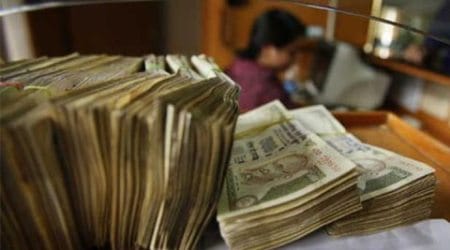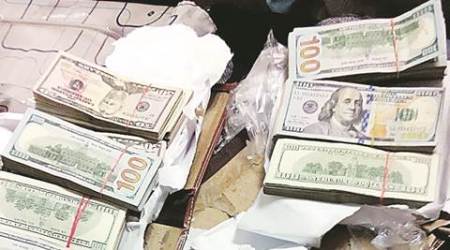 Gautam Adani (Reuters Photo)
Gautam Adani (Reuters Photo)
Adani Global Private Ltd, a Singapore-based company of the Adani Group, has moved the high court of Singapore seeking a stay on a demand to produce documents pertaining to Indonesian coal imports from Adani’s subsidiaries, a few shipping companies and banks by a lower court of Singapore, said sources. Over the last two months, the lower court of Singapore has asked for these documents after it received a Letter Rogatory (LR) from the Directorate of Revenue Intelligence (DRI), which is currently probing a few Adani Group firms for alleged overvaluation of such coal imports. An LR is a formal request seeking judicial assistance in investigating a foreign entity.
The website of the Singapore court shows that a case filed by Adani Global against the Attorney General and others was listed for hearing on August 21. Emails and phone calls to the Adani Group for comments did not elicit any response.
The DRI is probing at least 40 companies including six firms of Adani Group, two companies of the Anil Dhirubhai Ambani Group (ADAG) and two Essar Group firms for alleged overvaluation of coal imports from Indonesia pegged at Rs 29,000 crore between 2011 and 2015.
DRI authority strikes down proceedings against Adani Group firms (Read here)
The Indian Express reported on June 20, 2016 that three state-owned banks declined to provide to the DRI information lying with their overseas branches regarding transactions by leading power companies in connection with the coal imports case. The banks had cited confidentiality norms which prompted Revenue Secretary Hasmukh Adhia to write to these lenders to cooperate with the ongoing investigation.
Subsequently, the DRI issued LRs to Singapore, Dubai and Hong Kong — seeking help from them to access documents lying with the overseas branches of the state-owned banks relating to transactions by top power companies that were under probe.
Since a bulk of these documents were with Singapore branches of banks, last year a team of DRI officials visited Singapore to expedite the LRs. Singapore laws allow any entity to challenge the orders of a lower court in a higher court.
In March 2016, the DRI issued a general alert to its field formations across India, outlining the modus operandi of over-invoicing of coal imports from Indonesia. The DRI alleged that money was being “siphoned” outside the country and the electricity-generating firms were availing of “higher tariff compensation based on artificially inflated cost of the imported coal”.
The DRI alleged that Indonesian coal was directly imported from ports in that country to India while import invoices were routed through one or more intermediaries based in Singapore, Hong Kong, Dubai and British Virgin Islands to artificially inflate its value.
The agency, according to sources, found that inflated invoices received in India were issued by intermediaries, allegedly subsidiary companies of Indian importers or their fronts. The DRI alleged that in certain cases, the import value of Indonesian coal was artificially inflated by about 50 to 100 per cent by changing test reports which measure the calorific value of coal.
The DRI also raided over 80 shipping companies, labs and intermediaries including many in Maharashtra, Delhi, Gujarat, Karnataka, Odisha, West Bengal, Andhra Pradesh and Kerala to obtain documents that show the real value of imports. So far the DRI has issued show-cause notices to four firms — Knowledge Infrastructure Systems Pvt Ltd, Coastal Energy Pvt Ltd and two ADAG firms Reliance Infrastructure and Rosa Power Supply Co Ltd — for alleged overvaluation of coal imports to the tune of Rs 16 crore, Rs 589 crore and Rs 398 crore respectively.
These firms have denied overvaluation of coal imports from Indonesia. Most power companies currently under the DRI scanner, including Adani, too have denied such overvaluation. Typically in India, power tariff is regulated based on costing data provided by the power generator. According to regulations, the tariff comprises of capacity charges and energy charges. The capacity charges are fixed annually based on various factors. The energy charges are the cost of primary and secondary fuel used to generate power.
Artificial inflation of value of the imported coal increases the landed cost of coal which is a primary fuel in coal fired thermal power plants.The higher tariff dispensed by the regulator to the power generator enhances the cost of purchase of the power distributor which in turn factors this artificially enhanced cost in its billing to consumers.

